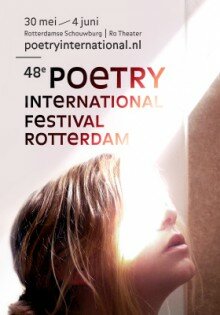Welcome to Japanese poetry - April 2006
For this second issue of the Japanese domain, we are proud to present an essay by Makoto Ooka, one of the most prominent poets in the post-war Japan, and poems by Inuo Taguchi, who belongs to the generation of Ooka’s children.
Born in Mishima at the foot of Mount Fuji in 1931, Makoto Ooka has been tremendously prolific and has received many awards both in Japan and abroad over the past half-century. His poetry style has ranged from French-style surrealism in the early years to concrete narrative poems more recently, revitalizing the century-old practice of Renga, linked poems, on its way. Ooka is also known as one of the most important literary critics and anthologists whose scope ranges from ancient Manyoshu Tanka to contemporary free-style verse. Throughout his career, he has discussed and introduced diverse and countless branches of Japanese poetry in such a creative way that a large tree of the living tradition can now be seen.
As an old friend of Poetry International Festival in Rotterdam (associates of PIW, ed), he has written an essay entitled An Overview of the Modern Japanese Poetry exclusively for this domain. Taking in the past 140 years of the Japanese history, he examines how our poets responded in their work to such dramatic changes as modernization, rising militarism, and Japan’s defeat in World War II. The essay provides us with an insightful guide to understanding and appreciating modern Japanese poetry, while sharing the author’s belief in poetry as “an extremely delicate and intricate product of the human mind which can contribute immensely to harmonizing and regenerating the processes of the human mind”.
Ooka points out that it is the sense of global contemporaneousness which distinguishes post-war Japanese poetry from that of former years. Perhaps we can find the best examples of this global contemporaneousness in the poetry of Inuo Taguchi. Born in 1967, and having grown up in the booming Tokyo, he started writing poetry in the early 90’s as the Japanese stock market and the Communist block countries were simultaneously collapsing. The young poet seems more at ease with Bob Dylan than with traditional Japanese poets. The world of his poetry, which has been dubbed ‘Inuo’s Land’ by the poet himself, is filled with pop culture icons. Yet far from falling into commercial cliché, his Japanese is refreshingly handsome, and his voice resounds as one of the most delicate and sensitive of his generation. We hope you enjoy this latest fruit of the Japanese poetry tree, it is one of the finest. The English translations by William I. Elliott and Kazuo Kawamura somehow highlight the poetry’s distinct flavour as opposed to making it more obscure, and we include a rare recording of the poet’s own reading.






